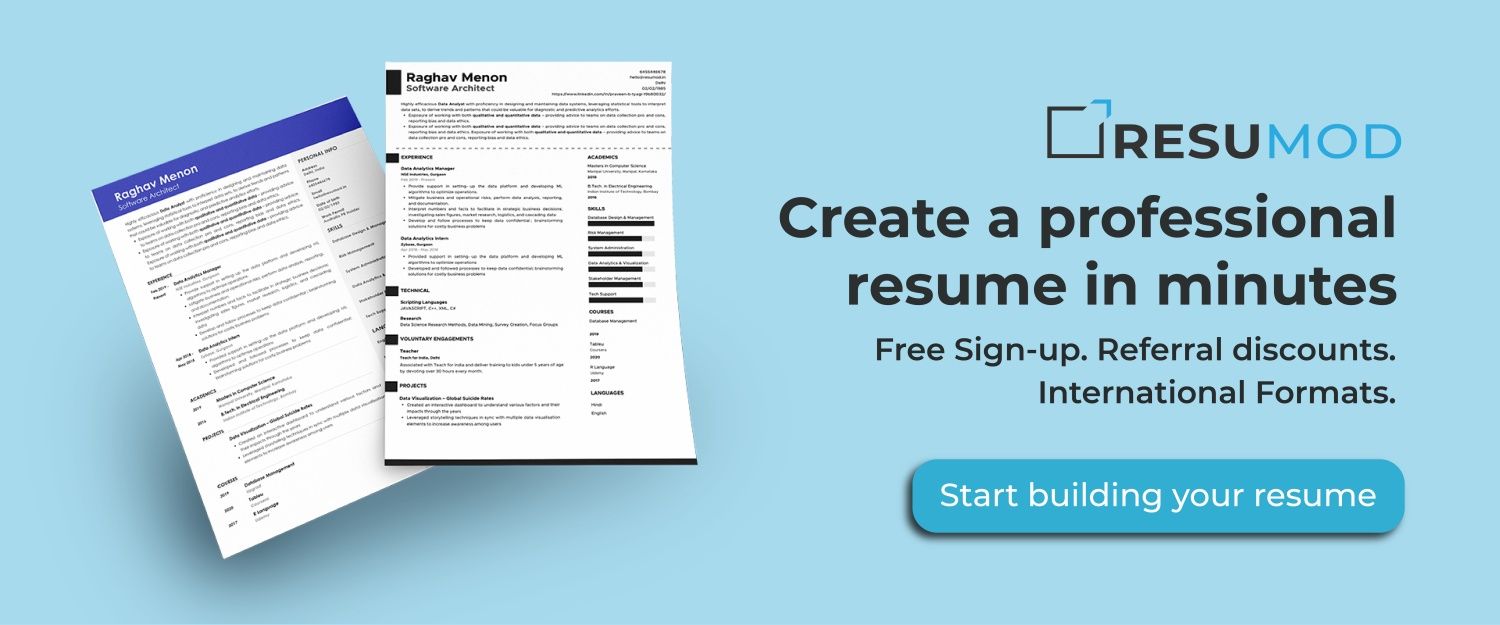How to Become a MLOps Engineer: A Step-by-step Guide
Artificial Intelligence (AI) and Machine Learning (ML) are no longer futuristic buzzwords - they are deeply integrated into our daily lives.
Artificial Intelligence (AI) and Machine Learning (ML) are no longer futuristic buzzwords - they are deeply integrated into our daily lives. From personalized recommendations on Netflix and Amazon, to fraud detection in banking, to predictive maintenance in manufacturing, ML models are making critical decisions that impact millions of people. But while creating these models is important, getting them to work in the real world at scale is an even bigger challenge.
This is where MLOps Engineers step in. They are the professionals who ensure that ML models don’t just stay in a research notebook but are successfully deployed, monitored, and maintained in production environments. Without them, many AI projects would never move past the experimental stage.
Over the last few years, the demand for MLOps Engineers has skyrocketed. Companies across industries are investing heavily in AI, and they need skilled professionals who can bridge the gap between data science and operations. According to recent industry reports, organizations spend nearly 80% of their AI project time on deployment and maintenance rather than building models. This statistic alone highlights the growing importance of MLOps.
In this blog, we’ll take a step-by-step look at what MLOps Engineers do, the skills you need, career opportunities, salary scope, and even common interview questions to help you prepare. Whether you’re a student exploring career options, a data scientist looking to scale your expertise, or a software engineer interested in AI, this guide will show you exactly how to become a successful MLOps Engineer.
Blog post includes:
- What does a MLOps Engineer do?
- How to become a MLOps Engineer?
- What do MLOps Engineer qualifications mean?
- Need of MLOps Engineers in different industries
- Who can become a MLOps Engineer?
- Salary Scope of MLOps Engineers in India
- Interview questions for MLOps Engineers
What does a MLOps Engineer do?
A MLOps Engineer is a professional who ensures machine learning models are not just created, but also deployed, monitored, and maintained in production environments. Think of them as a bridge between data scientists (who build models) and operations teams (who manage systems).
Some of their key responsibilities include:
- Model Deployment: Taking ML models from development to live environments.
- Automation: Setting up pipelines that automate data collection, training, testing, and deployment.
- Monitoring: Ensuring models continue to perform well after deployment.
- Scalability: Making sure systems can handle large amounts of data and traffic.
- Collaboration: Working with data scientists, software developers, and IT teams.
In short, a MLOps Engineer makes machine learning practical, scalable, and business-ready.
How to become a MLOps Engineer?
Becoming a MLOps Engineer requires a combination of technical skills, industry knowledge, and hands-on practice. Here’s a step-by-step approach:
Start with the Basics of Machine Learning
- Learn the fundamentals of supervised and unsupervised learning.
- Understand how models are trained, tested, and evaluated.
Learn Programming
- Python is the most popular language for ML and MLOps.
- Get comfortable with libraries like TensorFlow, PyTorch, and Scikit-learn.
Understand DevOps Principles
- Learn concepts like continuous integration (CI), continuous delivery (CD), and version control.
- Tools: Git, Jenkins, Docker, Kubernetes.
Practice with Cloud Platforms
- Familiarize yourself with AWS, Google Cloud, or Azure.
- Learn how to deploy models on these platforms.
Learn MLOps Tools
- Tools like MLflow, Kubeflow, Airflow, and DVC are essential for building ML pipelines.
Build Projects
- Start small: Deploy a simple ML model using Flask or FastAPI.
- Scale up: Automate training and deployment with pipelines.
Get Certified
- Consider certifications like AWS Machine Learning Specialty, Google Cloud ML Engineer, or Azure AI Engineer.
Apply for Entry-level Roles
- Look for roles like Machine Learning Engineer, Data Engineer, or DevOps Engineer to gain relevant experience.
Over time, with practice and real-world exposure, you can step into the role of a full-fledged MLOps Engineer.
Skills for a MLOps Engineer
To succeed as a MLOps Engineer, you need a blend of skills from machine learning, software engineering, and operations.
Technical Skills
- Programming: Python, R, and sometimes Java or Scala.
- Machine Learning: Understanding of model training, validation, and evaluation.
- DevOps: CI/CD pipelines, automation, and monitoring.
- Cloud: AWS, Azure, GCP, or hybrid platforms.
- Containers & Orchestration: Docker, Kubernetes.
- Data Engineering: SQL, Spark, ETL processes.
Soft Skills
- Problem-Solving: Ability to troubleshoot errors in deployment or model performance.
- Collaboration: Working across teams of data scientists, software developers, and business leaders.
- Adaptability: Staying updated with rapidly changing ML and DevOps tools.
What do MLOps Engineer qualifications mean?
When companies ask for MLOps Engineer qualifications, they usually mean:
Educational Background:
- A bachelor’s degree in computer science, IT, engineering, or mathematics.
- A master’s or specialization in AI/ML is often preferred but not mandatory.
Certifications:
- Cloud certifications (AWS, GCP, Azure).
- Specialized MLOps or ML lifecycle certifications.
Experience:
- Hands-on projects showing your ability to deploy and manage ML models.
- Knowledge of real-world challenges like handling unstructured data, scaling models, and monitoring drift.
So, ‘qualifications’ don’t only mean formal education - practical experience and projects carry equal weight.
Need of MLOps Engineers in different industries
MLOps is not limited to tech companies. Almost every industry that uses AI needs MLOps Engineers to make ML scalable and reliable.
- Healthcare: Deploying models for disease detection, patient monitoring, and drug discovery.
- Finance: Fraud detection, credit scoring, and algorithmic trading systems.
- Retail & E-commerce: Personalized recommendations, inventory management, and demand forecasting.
- Manufacturing: Predictive maintenance, quality checks, and supply chain optimization.
- Automotive: Self-driving car models, predictive analytics for safety.
- Entertainment & Media: Content recommendations, sentiment analysis.
In short, wherever ML models are applied, MLOps Engineers are needed to keep them running smoothly.
Who can become a MLOps Engineer?
You don’t necessarily need to be a PhD researcher to become a MLOps Engineer. The role is open to anyone with the right mindset and learning approach.
- Students/Graduates: With computer science, IT, or engineering degrees.
- Data Scientists: Who want to scale their models to production.
- DevOps Engineers: Looking to transition into ML-focused operations.
- Software Engineers: Interested in AI/ML applications.
- Working Professionals: From related fields like cloud engineering, automation, or data engineering.
If you enjoy both machine learning and system operations, MLOps could be the perfect career for you.
Salary Scope of MLOps Engineers in India
MLOps is still an emerging field in India, but the demand is rising fast as companies shift towards AI adoption. Salaries are competitive and often higher than traditional DevOps or data engineering roles.
- Entry-level (0–2 years): ₹6–10 LPA
- Mid-level (2–5 years): ₹12–20 LPA
- Senior-level (5+ years): ₹25–40 LPA
- Top roles in large tech firms: ₹50 LPA+
These numbers vary depending on the city, industry, and your skill set. Bengaluru, Hyderabad, Pune, and Gurgaon are the hottest hubs for MLOps roles in India.
Interview questions for MLOps Engineers
Preparing for a MLOps role requires both theoretical knowledge and hands-on clarity. Here are some common interview questions:
General Questions
- What is MLOps and why is it important?
- How does MLOps differ from DevOps?
- What are the stages of the ML lifecycle?
Technical Questions
- How would you deploy a machine learning model into production?
- What tools have you used for CI/CD pipelines?
- How do you monitor model performance after deployment?
- Explain the concept of model drift.
- What role do containers and Kubernetes play in MLOps?
- How do you manage large datasets for ML pipelines?
- Have you worked with tools like MLflow, Kubeflow, or Airflow?
Scenario-based Questions
- Suppose a model’s accuracy drops suddenly in production. How would you handle it?
- A data scientist wants to push a new model, but it conflicts with an existing pipeline. What steps would you take?
- How would you optimize costs when running ML models in the cloud?
Top Rated Resumes on Resumod
Resume of Machine Learning (ML) Engineer
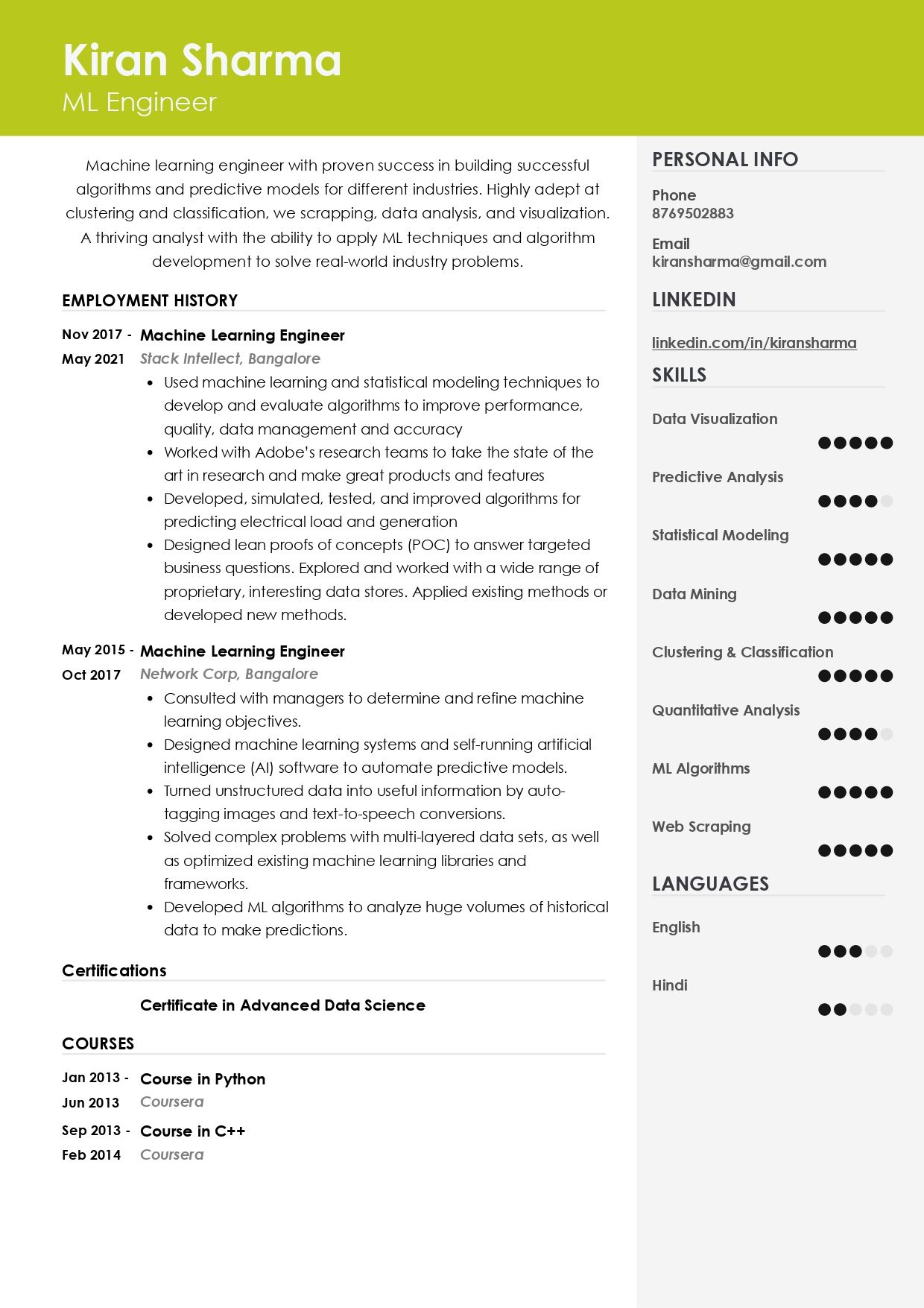
Check out the Full Resume of Machine Learning build on Resumod here
Resume of Hadoop Developer
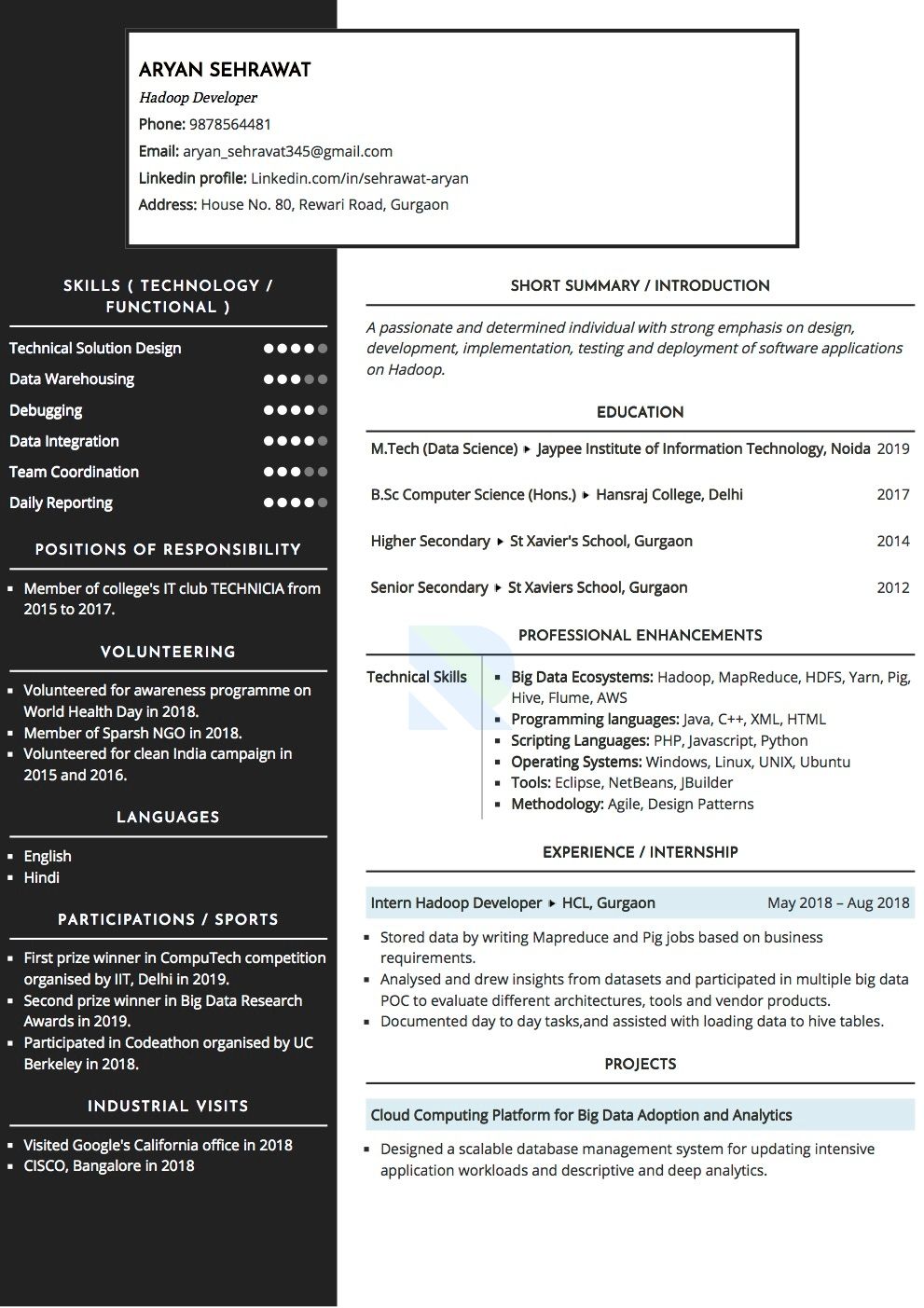
Check out the Full Resume of Hadoop Developer build on Resumod here
Resume of Operations Manager (IT)
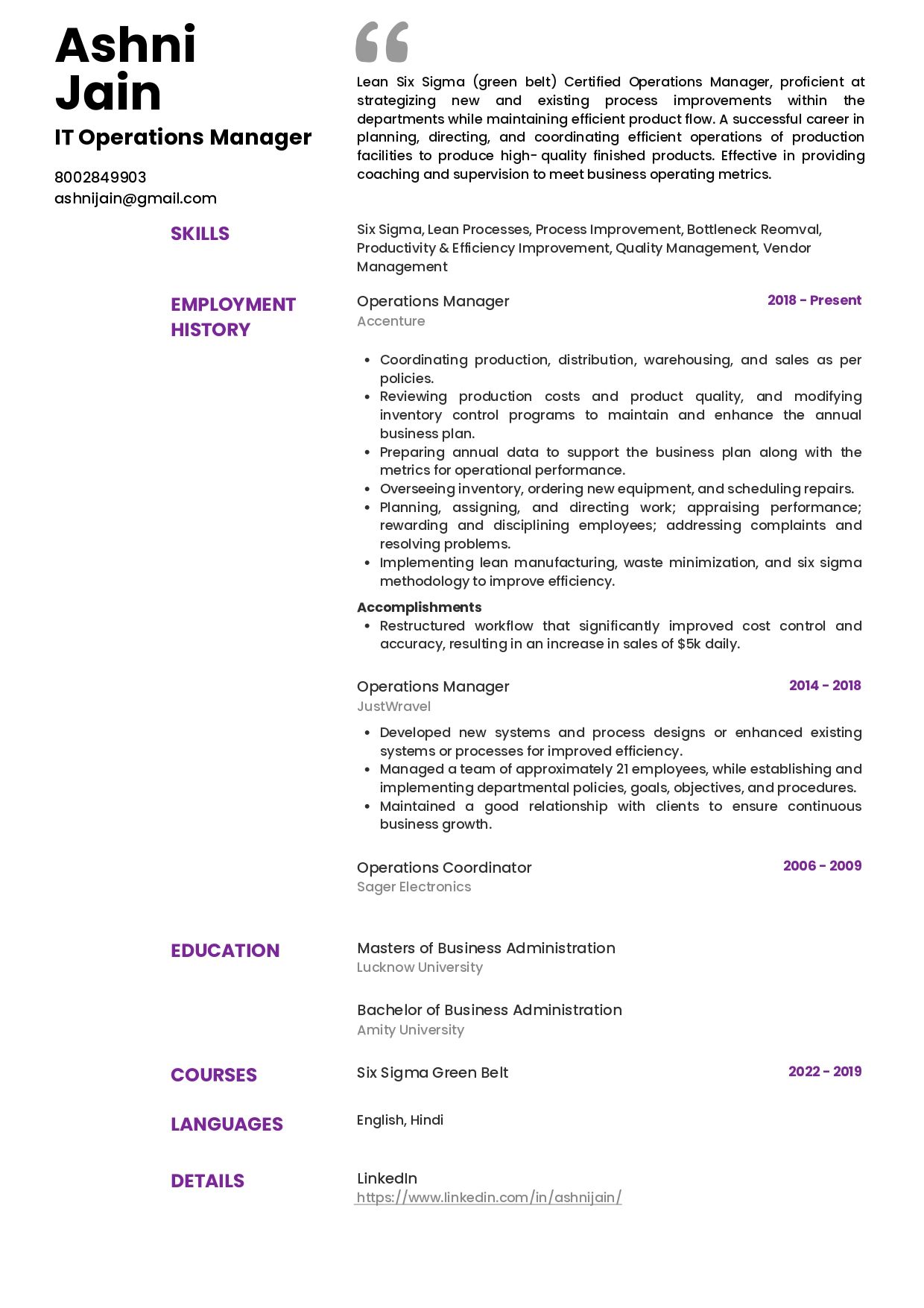
Check out the Full Resume of Operations Manager (IT) build on Resumod here
Resume of Data Annotator
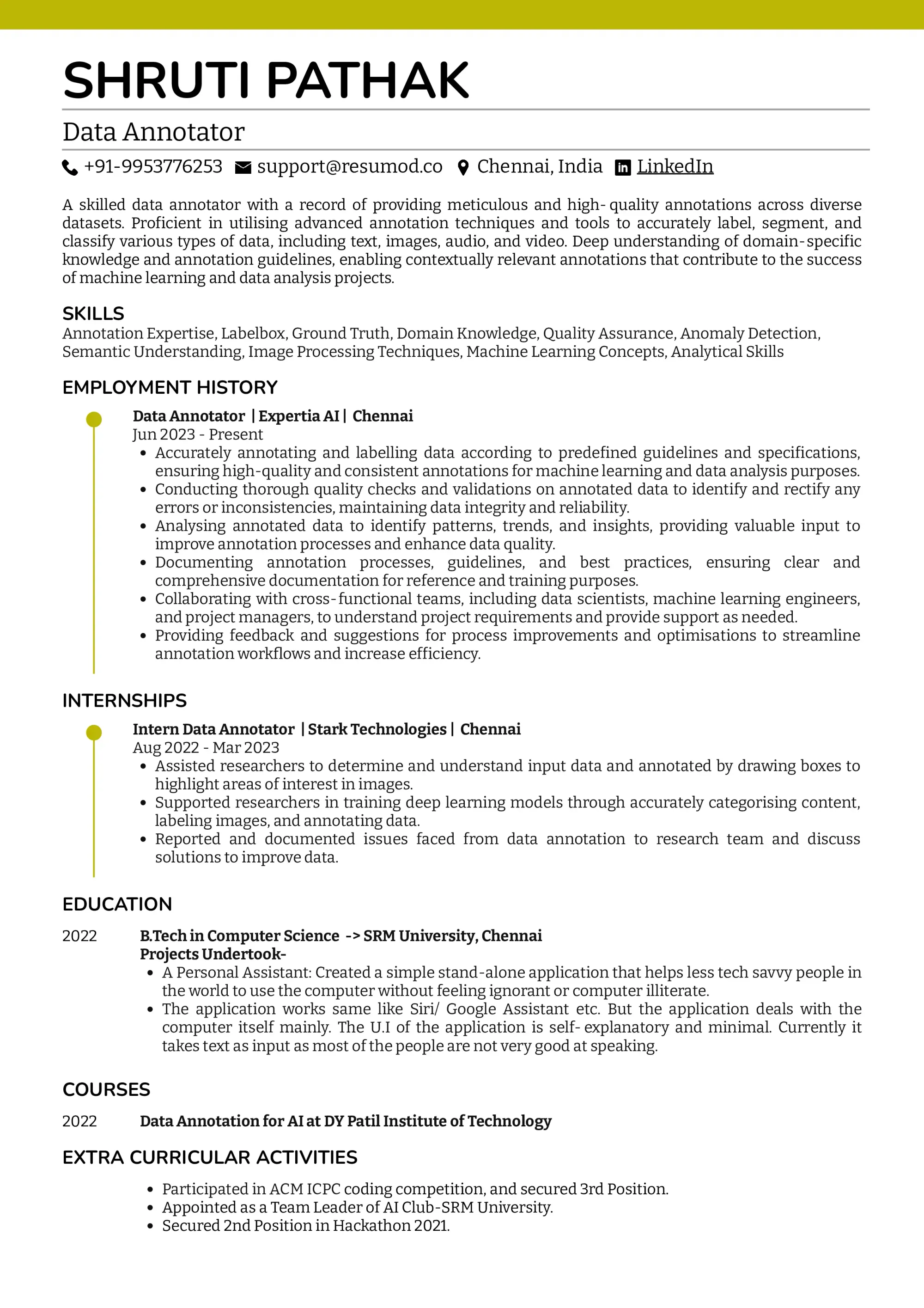
Check out the Full Resume of Data Annotator build on Resumod here
Resume of Materials Manager
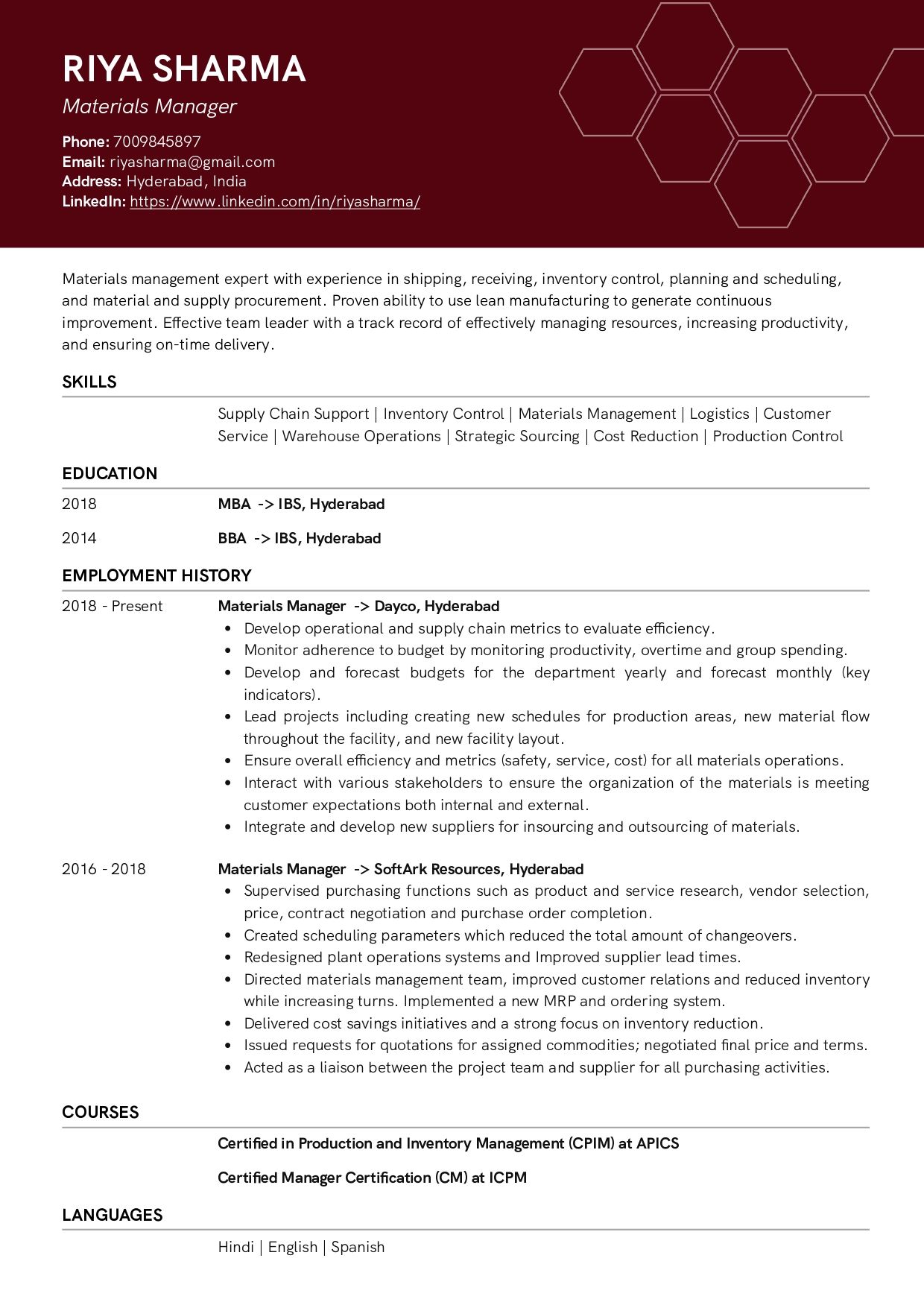
Check out the Full Resume of Materials Manager build on Resumod here
Final Thoughts
Becoming MLOps Engineer is one of the most exciting career paths today. It combines the best of machine learning, software engineering, and DevOps. While the journey requires commitment, the rewards are immense - both in terms of salary and career growth.
If you enjoy solving complex problems and want to play a crucial role in bringing AI to life in the real world, then MLOps could be the perfect career for you.

